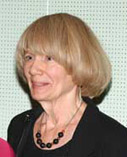 |
|
Feeley-Harnik (Photo by Martin Vloet, U-M Photo Services)
|
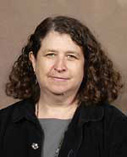 |
|
Goodman (Photo courtesy Institute For The Humanities)
|
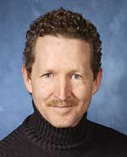 |
|
Lopez (Photo by Martin Vloet, U-M Photo Services)
|
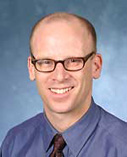 |
|
Metzl (Photo courtesy Institute For The Humanities)
|
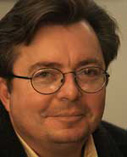 |
|
Shryock (Photo by Sally Howell)
|
Five faculty members have been awarded Guggenheim Fellowships for distinguished service and exceptional promise for future accomplishments in research.
The U-M fellows are: Gillian Feeley-Harnik, the Kathleen Gough Collegiate Professor of Anthropology; Dena Goodman, professor of history and women’s studies; Donald Lopez, Jr., the Arthur E. Link Distinguished University Professor of Buddhist and Tibetan Studies; Jonathan Metzl, associate professor of women’s studies and psychiatry, and director of the Program in Culture, Health and Medicine; and Andrew Shryock, associate professor of anthropology.
The 2006 fellowship winners include 187 artists, scholars and scientists selected from nearly 3,000 applicants for awards totaling $7.5 million.
Feeley-Harnik’s work involves kinship and ecology in 19th-century Great Britain and America. Her research specialties include socio-cultural anthropology, religion, political ecology, historical anthropology and history of life sciences.
“I am overjoyed to have received a Guggenheim Fellowship and grateful to those whose support has made it possible,” she says.
Goodman says the fellowship “will allow me to get away from the complexities of life and teaching in Ann Arbor to do the hard work of reflecting on the research I’ve done and shaping it into a book that will touch modern readers.”
Goodman will spend time in France, where she will attempt to understand women’s lives in the European past. She also will complete a book manuscript that explores how the practice of writing letters shaped women’s consciousness of themselves as women and as active, modern subjects in the decades before the French Revolution.
Lopez will use his fellowship to research and write a book entitled, “A Short History of the Buddha,” which will trace the European encounter with the figure of the Buddha, focusing especially on the 18th and 19th centuries. He will begin work on the project at the Getty Research Institute in Los Angeles.
“I am delighted to have the opportunity to undertake a new project with the support of the Guggenheim Foundation,” says Lopez, chair of the Michigan Society of Fellows.
Metzl‘s research interests include pharmaceutical advertisements, the history of medicine, and gender and health. For his project, Metzl will research and write a book about the relationships between stigmatizations of race and mental illness in the United States. He will study modern-day characterizations of people with schizophrenia as being excessively violent or hostile, in spite of evidence to the contrary.
“I hope to show how these conceptualizations of schizophrenic patients as violent emerged during the civil-rights era of the 1950s-70s in response to a larger set of conversations about race,” says Metzl, who will do archival work mainly in Lansing and Ionia, Mich.
Shryock, who has done ethnographic fieldwork in Yemen, Jordan, and also in Arab immigrant and ethnic communities in Detroit, will spend his fellowship year studying hospitality as a framework for politics, morality and history in Jordan.
“I’m convinced that hospitality can help us think about citizenship and human rights in new ways,” he says. His research on the Arab world centers on matters of historicity, nationalism, oral tradition, tribe-state relations, and modernity—both its cultural politics and alternative forms.
Since 1925, the Guggenheim Foundation has granted more than $247 million in fellowships to more than 16,000 individuals.

